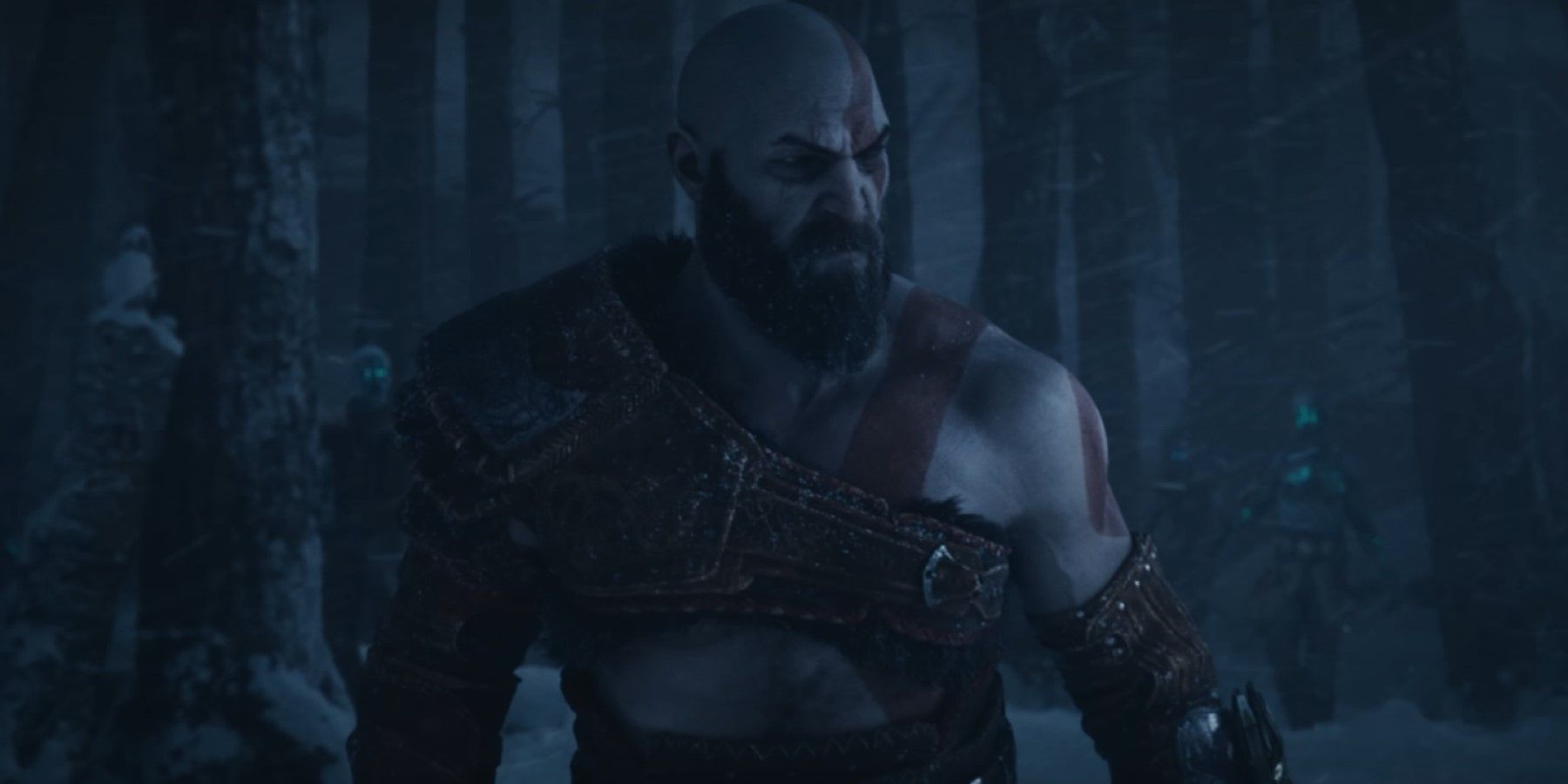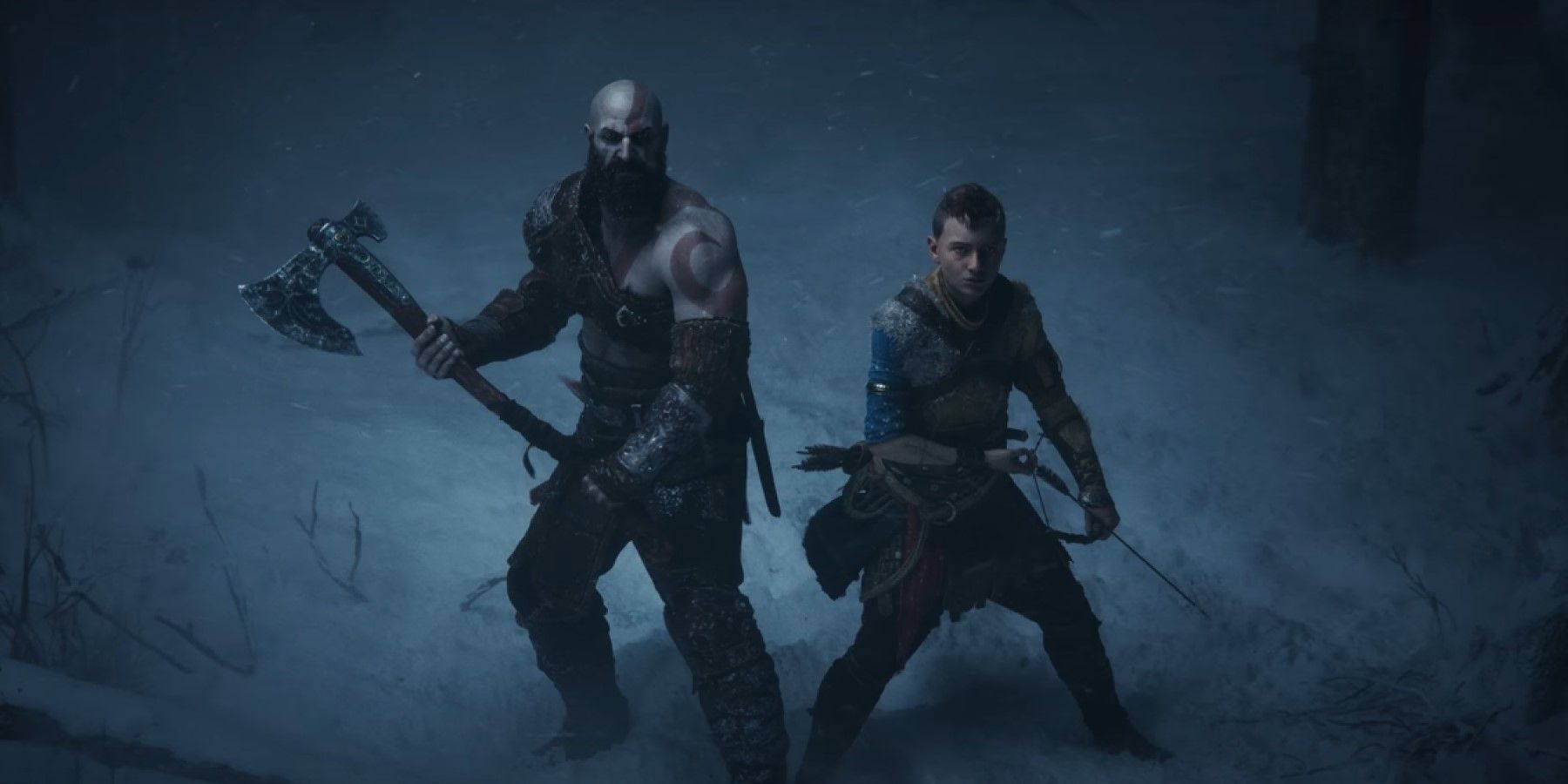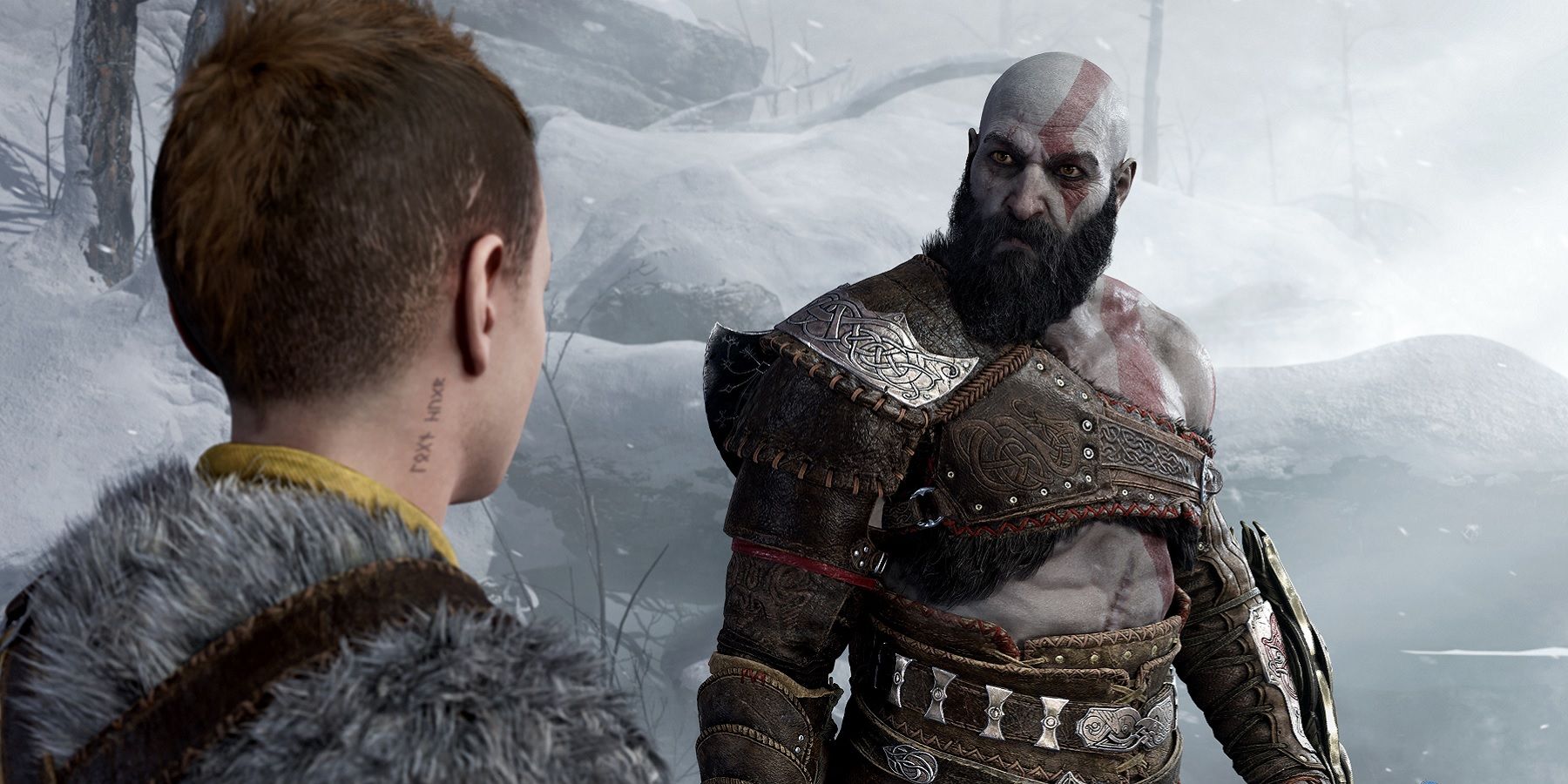In 2018's God of War, Kratos and his son, Atreus, set off on a journey to the highest point of the Nine Realms to scatter Faye's ashes. Along the way, they cross paths with Freya and her invulnerable son, Baldur, as well as a host of other enemies that stand in their path. The game ends with a sudden shift in the weather, and the Nine Realms become snowy. According to Mimir the talking head, Fimbulwinter has begun, though gamers will have to wait until God of War: Ragnarok to see more of it.
Trailers and screenshots of God of War: Ragnarok show that the Nine Realms have frozen over, making it evident that Fimbulwinter will play a prominent role. To better understand Fimbulwinter and how it connects to Ragnarok, it is worth looking into Norse mythology, which God of War borrows heavily from. While the great winter may be harsh, it is just a prelude to the destruction of Ragnarok.
The Great Winter
The word Fimbulwinter is derived from the Old Norse word Fimbulvetr, which means "the great winter." It shows up in a few sources of Norse mythology, including the Poetic Edda, where it is described as three successive winters which precede Ragnarok. Snow will blow in from all directions, covering everything in frost. It is the winter to end all winters, but Ragnarok is even worse. Terrible natural disasters will strike, and the gods will war against each other until death. Eventually, a new, fertile world will emerge from the waters, and the two human survivors, Lif and Lifthrasir, will repopulate the Earth. Fimbulwinter also comes up in Prose Edda, where it is mentioned that before the great winter where the sun will be useless, greed will cause family bonds to break, and brothers will kill brothers.
Fimbulwinter and Ragnarok in God of War: Ragnarok
At the end of 2018's God of War, Mimir warns Kratos that Fimbulwinter will bring lots of snow, followed by Ragnarok, which will bring about the end of the world. However, Mimir also notes that Fimbulwinter was not supposed to roll around for at least a hundred more winters, and Kratos has done something to speed up its arrival. Brok and Sindri are also worried about Fimbulwinter, and they fear that it signals the end times. If the prophecy is correct, this may be the coldest winter, but it also may be the last.
God of War: Ragnarok trailers show that Fimbulwinter will freeze over the whole of the Nine Realms, and with that, new enemies will arise. Because everything is iced up, Kratos and Atreus need a better way of getting around, and so they are shown riding a sleigh being pulled by wolves. Although players will still be in the Nine Realms, it is evident that Fimbulwinter will completely change things.
Kratos' actions have somehow caused Fimbulwinter to come around faster, which is worrying, but it also provides a sliver of hope. By affecting Fimbulwinter's arrival, he proves that fate is not set in stone, and regardless of what the prophecies say, it is possible to change the outcome of the future. This may mean that Kratos and Atreus can do something about Ragnarok and stop the terrible foretold events from occurring.
Kratos' greatest challenges yet lie ahead, and in addition to Freya, he presumably must also contend with Thor and his mighty Mjolnir hammer, the gigantic wolf Fenrir, and the possible appearance of Odin. Although the God of War series has always been inspired by mythology, it has also been creative enough to carve its own unique stories. Hence, while the game's Fimbulwinter might be as blustery as the one in Norse mythology, there is no telling where Santa Monica will take things.
God of War: Ragnarok releases on 9 November 2022 on PS4 and PS5.



